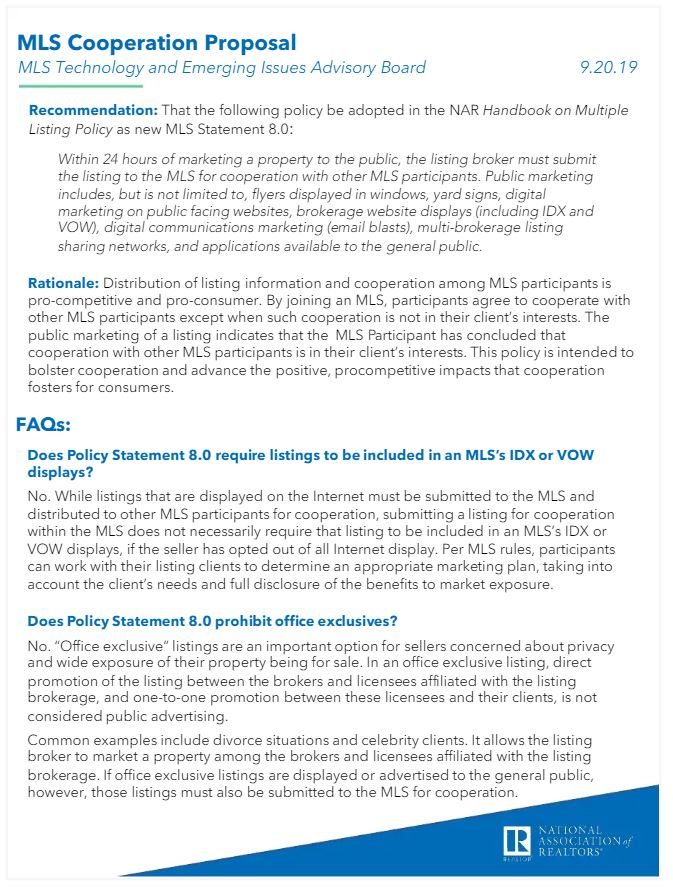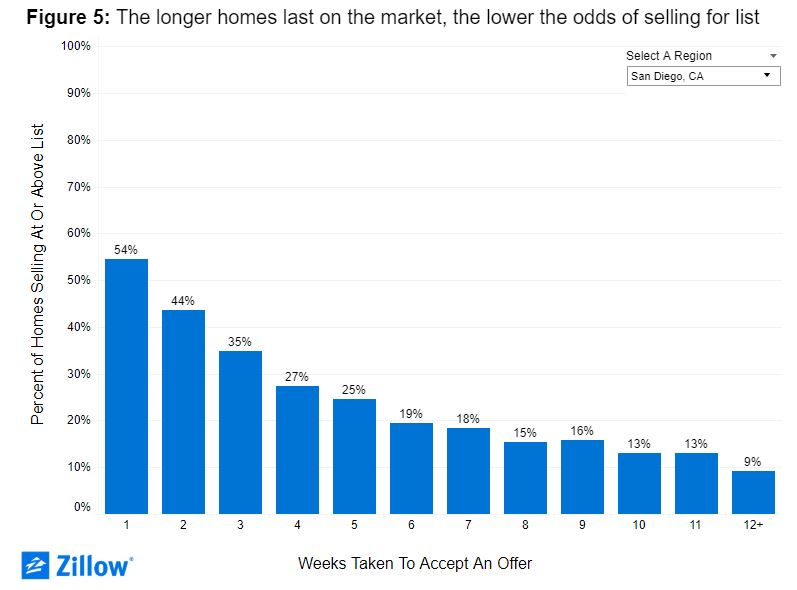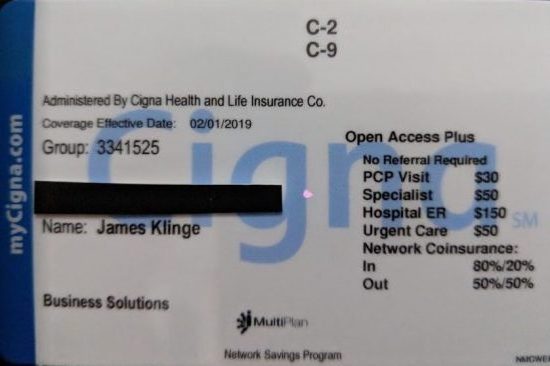by Jim the Realtor | Mar 17, 2020 | Jim's Take on the Market, Listing Agent Practices, Realtor, Realtor Training

Glad to see the NAR promoting this point – considering what other agents think of you:
David Weldon empathized with his client’s growing desperation to sell her home, a three-bedroom house in Southern California’s Riverside County. But he was uncomfortable about her suggestion for boosting the listing’s appeal.
The seller listed the home with Weldon last July at a list price of $600,000. After nearly 70 days on the market, the property hadn’t received an offer she would accept. She also was under contract to purchase another property contingent on the sale of her home, which added to the pressure. The seller asked Weldon, a broker-associate at RE/MAX One in Moreno Valley, Calif., to take steps that sounded to him like “gaming the MLS” to draw more eyes to her listing and get it sold faster.
She had learned from another agent in a prior transaction that there are ways to manipulate MLS data to the seller’s advantage. Loopholes in many MLS systems make it possible for real estate professionals to reset a property’s recorded days on market—making a listing appear newer than it is—or surface a home on an MLS’s “hot sheets” with, say, a $100 reduction in list price. While these practices can help raise the visibility of listings in the MLS, they’re also deceptive marketing techniques that have the effect of skewing real-time MLS data—a problem the real estate industry is working to solve—and cast a poor light on agent professionalism.
“The MLS platform is not the tool to refresh a listing,” says Rene Galicia, director of MLS engagement at the National Association of REALTORS®. “You’re not treating the underlying issue—perhaps you need to revisit your pricing strategy, for example—if you’re relying on gaming the system to get action on your listing.”
Weldon says it’s not uncommon for agents in his market to inappropriately cancel and resubmit a listing to the MLS with an inconsequential edit to the property’s address—such as changing “Street” to “St.”—which resets days on market in the system. That’s the type of action his seller was requesting.
“There’s no way to do what the seller was asking me to do that I’m comfortable with,” Weldon says. “I said, ‘You want me to cancel the contract and start over after I’ve put in a considerable amount of time marketing your property.’?” When his client was unrelenting, Weldon decided to end his professional relationship with her. The seller relisted with another agent, and as of mid-January, the property had been on the market for 106 days—more than a month longer than Weldon had the home listed.
Your Good Name Is on the Line
While not necessarily a violation of the REALTORS® Code of Ethics, these types of tactics may “work against the duty of honesty in Article 1, and the ‘true picture’ mandate for all advertising, marketing, and other representations in Article 12,” says Rodney Gansho, NAR’s director of engagement and staff executive to the Multiple Listing Issues and Policies Committee.
Not all practitioners see it that way, though. “In some markets, people consider these practices to be wrong, while in other markets, it’s tolerated,” Gansho says. “Most agents can look up a property’s history to see exactly what’s changed or when it was first put on the market, so gaming the MLS is a limited strategy anyway.”
Galicia takes particular exception to the idea of lowering a list price by a minuscule amount to boost its standing on MLS hot sheets. “Most MLS technology will display the dollar amount of the price reduction, and savvy consumers can see that a $100 price drop is not a legitimate strategy,” he says. “If a listing shows up on a hot sheet all the time, that could be a sign of data manipulation rather than true changes to the terms of the listing itself.”
Such a pricing strategy also could damage your reputation with other agents who find it offensive and could ultimately hurt your ability to find a buyer. “I’ve seen properties reduced by $1,” says Dan Halperin, GRI, an agent with Gagliardo Realty Associates in River Forest, Ill. “It’s just a waste of everybody’s time. It irritates clients, and it doesn’t leave a good impression on the public.” Halperin adds that many of his buyers feel an urgency to be among the first to visit a new listing, so he keeps a watchful eye on turnover in the MLS. “I want to be able to tell my clients whether it’s been listed six times or had several price drops in the past,” he says. “I want them to know when it’s not the hot property they think it is.”
So what’s a smarter approach? Instead of resorting to MLS gaming tactics, focus on using professional listing photos from the start and adding virtual home tours and floor plans to listings in order to refresh them, Galicia recommends. Gansho encourages agents to revamp listing descriptions as a way to capture interest from people who may have previously overlooked your listing. These changes won’t appear on an MLS hot sheet, but sharper marketing may get buyers to pay closer attention.
Link to Article
by Jim the Realtor | Dec 18, 2019 | Coming Soon, Listing Agent Practices, Realtor, Realtor Training, Realtors Talking Shop |

The new C.A.R. forms for 2020 are available, and the most interesting is the MLS-exclusion form in light of the NAR Clear Cooperation policy that begins on May 1st.
Last year I asked the C.A.R. lead attorney about their stand on Coming-Soon and off-market listings, and Gov said it is up to the brokerages. Their new form reflects it too – they have left it optional for agents sellers to choose to comply:


The form does a better job disclosing the listing-agent shenanigans, and makes them a choice for the seller. But will the listing agent discuss the choices? Or just write it up and send for sigs? The sellers just want their money – they assume their agent will be implementing the best ideas to achieve top dollar.
On May 1st, the Clear Cooperation policy will be in effect, which was intended to discourage off-market sales. But in paragraph 9A you will see that office exclusives are permitted, which will legitimize selling properties in-house. The realtor shops with the most listings will prosper if they pitch them hard to their fellow agents – and most already have an internal marketing system to facilitate.
There is an argument that off-MLS sales are good for the seller because the buyers are pressured to pay all the money before the property goes on the open market.
But off-MLS sales add some uncertainties:
- Did the buyers steal it, or did they over-pay?
- Were there other buyers that would have paid more?
- Are the off-MLS sales legitimate comps for the next guy (seller or buyer)?
- Are we still committed to sharing our listings with other agents?
The MLS will still exist, and be the market of last resort because the best properties with the best prices will be sold in-house, or to the aggressive, professional salespeople.
Richard just procured a new sale for his investor client by calling agents who had sold similar properties recently. One told him that he did have a Coming-Soon that was a 6-cap, and gave him the address. Richard hustled his buyer over to the property and promptly submitted an offer, which got accepted yesterday!
Why are Coming-Soon/off-market sales attractive to listing agents? Because they can save time and money on marketing, and hurry up to the next deal. But that selfishness will change the landscape for buyers and buyer-agents, and both will need to be well-connected to succeed.
by Jim the Realtor | Oct 1, 2019 | Coming Soon, Jim's Take on the Market, Operation Transparency, Pocket Listings, Realtor, Realtor Training, Realtors Talking Shop |

The National Association of Realtors is attempting to regulate a change in the Coming Soon environment – see above. The way it is written, however, will just take us back to the days when off-market deals were done behind closed doors because they are permitting the ‘office exclusives’.
Coming Soons were the industry’s public admission that we do off-market deals, and to give you a chance to get your piece of them. But now the N.A.R. wants brokerages to pick a lane.
The choices:
1. Comply with the new rule, and change the name of your off-market deals to ‘office exclusives’, where no one can see them.
2. Don’t do anything, and pretend that off-market deals aren’t happening at your shop.
3. Declare publicly that off-market deals are a vital part of your business, and keep marketing them as Coming Soons to the public, in spite of any changes in the N.A.R. rules. What are they going to do?
Numbers 1 & 2 above are the less-transparent choices, and the easier way to go for the agents who justify their off-market deals by saying the seller got what they wanted.
Number 3 is the fully-transparent admission of the truth – agents like to pad their wallets with off-market deals, and don’t see anything wrong with that.
Off-market deals aren’t going away, regardless of the rules. The existing rules already state that all listings are to be inputted onto the MLS within 48 hours, but it gets ignored and there is no policing or penalties.
It’s better for everyone involved – agents, buyers, and especially sellers – to put every listing onto the MLS to ensure full exposure so everyone can compete. Buyers would feel they had an equal chance to buy, sellers get top dollar, and all agents get a fair chance to earn a paycheck.
But N.A.R. and the industry’s upper management looks the other way. It will take a class-action lawsuit or new regulations from the federal government to bring real change.
Here are Rob’s thoughts:
https://notorious-rob.com/2019/09/on-nars-mls-policy-statement-8-0-a-step-forward-into-confusion/
by Jim the Realtor | Aug 31, 2019 | Jim's Take on the Market, Realtor, Realtor Training
We are heading into the off-season, and more listings will be expiring. Here’s how the listing contract works:

by Jim the Realtor | Jul 24, 2019 | Jim's Take on the Market, Realtor, Realtor Training, Why You Should Hire Jim as your Buyer's Agent, Why You Should List With Jim |
Thanks to the readers who sent in the news about Amazon and Realogy teaming up to provide a basket of goodies to customers who get their agent through their TurnKey system:
Real-estate brokerage giant Realogy Holdings Corp. launched a new partnership with Amazon.com Inc. on Tuesday, a fresh attempt at jump-starting the property firm’s flagging business and tumbling share price.
Under the new program, known as TurnKey, home buyers searching for an agent on Amazon.com will be directed to a Realogy agent in their market. These buyers get up to $5,000 of smart home devices and free home services from Amazon, from unpacking and cleaning to furniture assembly and smart home setup.
Realogy is hoping the power of the Amazon brand can energize its own amid a prolonged slide in its stock price. The company declined to comment on the agreement’s specific financial terms but said it is footing the bill for the home services from commissions earned from deals that the venture with Amazon is anticipated to generate.
There are many places that offer to provide a realtor for you:

Who pays for the service?
The agents do, and it can be a hefty referral fee – usually 25% to 40% of the commission.
However, you don’t get directed to the best agent in the area, oh no. You get directed to the best agent in the area who is willing to pay their fee.
We call this, “Buying The Business” and it’s what agents do who can’t earn the business otherwise. Either agents can demonstrate their skill-level and abilities to consumers to earn their business, or for the agents who can’t, gimmicks or discounted commissions are used to ‘buy’ their business instead.
It’s just one more thing about the real-estate-selling business that isn’t disclosed to the public.
This gimmick is a way for Realogy to provide leads and keep more of their agent’s commission:

Will the public ever catch on to how the game is played?
The agents who are willing to pay for the leads either don’t have the skills, or can’t demonstrate them.
Going through Zillow isn’t much better. The big realtor teams get the best leads there, and pass them off to their new agents and then take a large chunk of their commission.
Bottom Line: Agents all look the same, and the industry does nothing to help you differentiate. You must do your own investigation to find out if your agent has the skills and ability to provide the help you need.
~~~~~~~~~~~~~~~~~~~~~~~~~~~~~~~~~~~~~~~~~~~~~~~~~~~
Let’s say that the Amazon customers who prefer to just click a button for their every need in life plunges ahead without much care about the realtor they get – they just want their goodies.
What do they get?

The dedicated Amazon customer already owns a few of the goodies – most of the equipment listed above is into their 2nd or 3rd generation by now. Only the Ring Doorbell Pro and the Camelot Deadbolt are attached to the house. So if a buyer already owns the other gear, they can take it with them – and receiving duplicates of the Echo Spots, Shows, etc. isn’t much of a prize.
For the casual Amazon customers, do they even want/need the high-tech gear?
Because they aren’t handing you a check for $5,000 – instead, you get some household goodies that can all be bought separately for $100 to $400 each.
Or will click-a-button real estate be enough of a thrill/reward?
by Jim the Realtor | Jul 10, 2019 | Jim's Take on the Market, Market Buzz, Realtor Training, Thinking of Selling?, Why You Should List With Jim

I don’t know if they surveyed actual home sellers, but if these stats demonstrate the current sentiment, it shows how critical it is to list a home at ‘market price’ vs. ‘dream price’.
An excerpt from this HW article:
You’ve listed your home for sale, and no one is taking the bait. One month passes, then two. How long do you wait before you increase the odds of an offer by dropping the price?
According to a recent survey, most American home sellers opt to reduce their asking price after three months of zero offers.
Specifically, a survey of 1,000 consumers revealed that 33% would opt for a price reduction after three months, making it the most common choice.
Just under 20% said they would wait one month, while 17% would wait five months. For about 9%, it would take an entire year before they’d reconsider their price.
But for others, they’d rather not sell at all as opposed to selling for less than they originally wanted, with about 12% said they would never lower the price of their home.
The 33% would wait three months, but 38% would wait at least five months or longer to lower their price, if at all (17%+9%+12%).
~~~~~~~~~~~~~~~~~~~~~~~~~~~~~~~~~~~~~~~~~~~~~~~~~~
Zillow says that the average price reduction is 2.9%, which isn’t going to impress buyers much. When prices were rising 5% to 10% annually, the market would catch up with a wrong price before too long. But now that pricing is flat, we don’t have that luxury – and we need to be smarter about price strategy.

https://www.zillow.com/sellers-guide/when-to-reduce-house-price/
by Jim the Realtor | May 31, 2019 | Jim's Take on the Market, Realtor, Realtor Training, Realtors Talking Shop |

I haven’t seen an article yet where the reporter gets the other side of the story, so I’ll address these fallacies below at green paragraphs. Hat tip to all who have sent in this story!
Why should a home seller have to pay for the buyer’s side of the transaction, especially when the buyer’s expenses include negotiating against the seller?
That apparent conflict of interest is at the heart of an escalating legal battle that pits the National Association of Realtors (NAR) against a group of law firms that filed a class-action lawsuit on behalf of home sellers against the NAR and four large national real estate brokers: Realogy, HomeServices of America, RE/MAX and Keller Williams Realty. As of May 22, the Department of Justice joined the fray when it demanded information about residential estate commissions from CoreLogic, a California-based data analysis firm.
JtR – Why? Because it is in the seller’s best interest to offer a bounty/bribe to the buyer agents.
The fight is forcing into the open many of the hidden factors that dictate how realty agents are paid and common practices that make it difficult for home sellers to effectively negotiate the commissions they pay.
It is standard for multiple listing services — data bases owned by realty agents — to require that the entire commission be paid by the home seller. Typically, the commission is 5% to 6% of the sale price of the property. Then, the commission usually is evenly split between the broker representing the seller and the broker representing the buyer.
That means that the seller directly pays for the transaction costs for the other side — even when, as is common, the other side negotiates for a better deal. The net result is that the seller is forced to pay for those working against him or her. The core of the lawsuit is that “the rules are, in effect, anti-competitive,” said Brown. “It’s a very strange way to run a market.”
JtR – The MLS does not require that the entire commission be paid by the home seller. They require that the listing broker offers compensation to the buyer’s agent, and it can be any amount.
The NAR filed to dismiss the lawsuit, partly based on the fact that it supports many types of business models for its members, said Rene Galicia, director of MLS engagement for the NAR. “The MLS doesn’t set commission rates. That’s left up to individual brokers and consumers, depending on the transaction,” he said. “Consumers should look at their level of comfort with real estate and what they want to accomplish. It’s highly competitive right now. Lay out your goals and find which broker will meet your needs.”
The actual commission structure has not been tackled head-on until now, say real estate experts.
JtR – The commission structure gets tackled every day on the street – without pads and helmets! We should do a better job of disclosing how much commission, and why, to all parties.
The split-commission structure causes confusion when sellers try to negotiate how much they will pay, because any reduction must be negotiated with everybody involved, explained Gary Lucido, president of Lucid Realty Inc., a Chicago broker that offers rebates on commissions. For instance, if the seller’s agent agrees to take less money, the buyer’s agent might not agree to a discount.
JtR – The commission isn’t negotiated with everyone involved. The listing agents decide how much they are willing to pay buyer-agents, and then present the commission package to the seller for approval or negotiation. The buyer-side cut comes out of the total commission negotiated between listing agent and seller – the only choice the buyer-agent has is whether they will show the house.
Also, the baseline costs of selling are not always obvious to consumers, said Lucido, which means that home sellers often don’t have the information they need to effectively negotiate. The cost of listing a house in the MLS, which feeds national listing sites such as Trulia and Zillow, is the same regardless of the asking price. A higher-end property might require additional marketing services and associated costs, such as a drone video or a fancy broker’s open house.
But usually, said Lucido, the additional cost of marketing does not justify the richer commission on a higher-end property. That is why, he said, agents are more willing to reduce their commissions on more expensive properties than on those under $200,000: Once the fixed costs are covered, it doesn’t take that much more work to sell an expensive property than a moderately priced property.
JtR – This is the common ploy by discount agents – that it doesn’t cost that much more to sell the higher-end properties. It suggests that all agents offer the same skill set, which is the true issue that needs to be examined – and maybe in court. Because the supply-and-demand of higher-priced homes is in the buyers’ favor, the sellers should hire agents with advanced sales skills and resources.
The class-action lawsuit and DOJ involvement might be enough to bring Americans in line with the rest of the world in terms of how real estate fees are calculated and paid for, said Timothy S. Becker, director of the Kelley A. Bergstrom Real Estate Center at the University of Florida in Gainesville. “The 6% model is ridiculous compared to how real estate is bought and sold in the rest of the world,” said Becker. “The agencies are set up to work for the transaction and for the agents’ own interests, not for consumers.” Real estate commissions around the world vary, but often are as low as 1.5%.
JtR – The media insists on quoting outsiders incessantly on this topic, but never explores further. You pay peanuts, you get monkeys.
It is significant that the class-action lawsuit is brought on behalf of property sellers, because they are the ones who pay the entire cost of the transaction. “The buyers currently don’t pay anything,” said Becker, “There should be a correlation between what you get and what you pay for.”
JtR – If buyers don’t pay anything and, as a result, can choose any agent to represent them, you’d think they would search out the very best. Why don’t they? The internet has made the homes for sale more available to consumers, but has it educated them on the nuances? No, and the industry is to blame. This lawsuit won’t change it, either.
Link to Article
by Jim the Realtor | Apr 18, 2019 | Auctions, Jim's Take on the Market, Listing Agent Practices, Realtor, Realtor Training, Realtors Talking Shop |

Realtors are fighting the idea of open bids? Agents prefer no rules:
Ontario real estate agents are lobbying the province against the mandatory disclosure of offers among competing home buyers in transactions involving multiple bids.
The Ontario Real Estate Association (OREA) sent a bulletin to its 78,000 members this week urging them to contact their MPPs to oppose the compulsory sharing of offer prices and conditions among competing buyers. That’s something the province has said it is considering as part of its planned update to the 2002 Real Estate Business Brokers Act (REBBA).
“Buyers and sellers should have the choice of using an open, transparent process,” said the OREA email.
It says that sharing information about competing bids could lead to the disclosure of personal financial information to any interested parties.
“The government should not force consumers to gamble their life savings in an experimental, mandated open offer process,” said the OREA email signed by association president Karen Cox.
“Hard working realtors like you would face increased red tape,” it warned.
Under the current rules, a real estate agent can only share the details of offers with the property seller.
But consumers should have a choice if all the buyers and the seller agree, said OREA CEO Tim Hudak.
Making the disclosure of offers mandatory “would be a radical change in the real estate market that does not exist anywhere else in North America,” he said.
“This would invoke a brand new process for every real estate transaction where brokers would have to distribute offers to all the other buyers,” said Hudak and that means sharing prices, deposit and closing information, right down to who gets the fridge.
The buyers’ addresses would be included in each of the offer documents, as well as conditions around the need to sell another home or the amount of cash that buyer has on hand for a deposit.
Some sellers would agree to share offer information based on their ideas of fairness for buyers, said Hudak. But all sellers should seek the advice of their realtor, he added.
At least one Toronto agent says his advice would depend on whether he was representing a buyer or seller.
“If I were representing my seller I’d say, ‘no.’ Unless I was mandated to do it, I wouldn’t do it. It’s our job to protect our clients,” said Royal LePage’s Desmond Brown. “If I had a buyer I would want to know as much information as possible.”
Among its 28 recommendations for modernizing the real estate act, OREA is proposing that the government eliminate bully bids — offers that pre-empt the time the seller has set to look at bids on their home. It is also recommends the elimination of escalation clauses, offers that specify the buyer will exceed the best bid by a certain amount.
The Toronto Real Estate Board (TREB) said it understands, “the fairness angle,” of disclosing competing offer details. “But this will also be a tricky area for the government to attempt to legislate,” said a statement attributed to board CEO John DiMichele.
“Disclosing bids puts realtors in conflict with their seller clients,” he said.
In regard to bully bids, the government would need to either require sellers to look at all offers as they come in or not accept any until a certain date.
“We prefer less government intervention in the marketplace,” said the statement.
Link to Article
by Jim the Realtor | Feb 21, 2019 | About the author, Compass, Jim's Take on the Market, Realtor, Realtor Training, Realtors Talking Shop |
Today, Ryan Gorman, the CEO of NRT which owns Realogy (Coldwell Banker, Century 21, Corcoran, etc.) took a major shot at Compass.
He released this two-page ‘questionnaire’ for his agents to use when interviewing with Compass, but he sure comes off as desperate and paranoid:
Help-Agents-Avoid-Being-Thrown-Off-Course-by-a-Spinning-Compass-CB-NRT
Our CEO, Robert Reffkin, shrugged it off, which is fine and what he should do:
“What you talk about is a representation of what you are focused on,” Reffkin said. “We don’t tear down competitors, we don’t pay attention to the noise, what we focus on is empowering agents.”
But as a Compass guy, I’m going to address some of Ryan’s specific concerns for those consumers and agents who might be curious and want to know the truth:
1. Robert Reffkin told us that because we’re in the Top 20 markets, the company was going to concentrate on supporting and growing those already in play – which sounds great to us agents. I don’t know how you rate the Top 20, but here’s where we are: Atlanta, Boston, Chicago, Dallas, Denver, Houston, Los Angeles, Miami, New York City, Orange County, Philadelphia, San Francisco, San Diego, Seattle, and Washington D.C., plus nine other smaller cities – which makes 24 markets. Close enough.
2. Compass agents grow their business quickly after joining Compass? I don’t remember that claim specifically, but every agent knows your business usually takes a hit when you change companies. Ryan said York at MoxiWorks contradicted the claim, but that’s not true. York said that the Compass market share was lower than claimed, but he checked the Compass production only, when Compass said it was the agents’ cumulative total for the year. Agents count their annual sales volume, regardless of their brokerage, so the Compass and MoxiWorks measurements were apples and oranges – for Ryan to misconstrue what happened is disingenuous.
3. Ryan says Cigna isn’t our insurance company, but looks like they are to me:

We saved $4,000+ per year and have a lower deductible.
4. Ryan claims Compass is losing money and wants to know about the turn-around plan? There’s $1 billion in the bank, and Compass will likely do an IPO in the next 24 months. But agents are focused on selling homes – if we make any money on stocks or stock options, it will be icing on the cake.
5. Ryan said that Compass ‘strongly encourages’ agents to use the in-house tools. Nobody has ever asked or told me to use the Compass tools. Furthermore, the Compass agents I know are all seasoned professionals who used their own tools long before working at Compass.
After his release went public, Ryan said this:
“I believe competition raises the level of play, and I welcome it,” Gorman said. “But when a competitor fails to uphold the basic ethics and integrity that this industry has together worked so hard to build, and puts the people I care about in jeopardy, I cannot sit on my hands.”
“The ‘talk’ coming from Compass behind closed doors is disturbing, and yet even in public forums, such as this publication, the inconsistencies, exaggerations and flip-flops by Compass executives are deeply concerning.”
The NRT sales volume is around 5x what we sell at Compass, and this guy goes ballistic over half-truths and innuendo, most of which is wrong or inconsequential? Why?
by Jim the Realtor | Jan 8, 2019 | Coming Soon, Ethics, Jim's Take on the Market, Realtor, Realtor Training |

Yesterday we heard from Gov Hutchinson, the assistant general counsel for the California Association of Realtors. He travels around the state to inform realtors of the basic changes to forms, and helps define other aspects of the business – here’s a summary of what we heard:
- Transfer Disclosure Statement – The buyer has a five-day rescission period after receiving the completed TDS from the seller (the form where the sellers disclose pertinent facts about the property). If the form is delivered to the buyer’s agent late, incomplete, or unsigned, the buyer can still cancel the transaction even if they have already released their other contingencies.
- The CA Department of Real Estate is unhappy with compliance to the rule that realtors need to have their license number on every flyer, business card, sign, social-media account, etc. They have hired additional personnel to chase us around.
- It’s acceptable for landlords to say ‘no pets’, but they must accept tenants with service animal (seeing-eye dog) or emotional-support animal with a note from a licensed caregiver – as long as it is reasonable. If the animal affects the landlord’s insurance, or is a threat, the landlord can say no. The law supersedes HOA, C,C,&Rs, and city codes, and the landlord cannot require a pet deposit or higher rent for these animals.
- A landlord cannot require tenant insurance.
- A landlord cannot be compelled to take a Section 8 tenant.
- Low-flow plumbing is required in all homes throughout the state. Sellers don’t have to fix/update if the buyers will accept as-is.
- If a house for sale has hidden cameras, there should be a sign near the front door to alert buyers and agents who are showing the property that the house is under surveillance.
- No laws, rules, or guidance on Coming Soons – it is a local MLS issue.
I think we can say that the Coming Soon dilemma has been decided – nobody wants to address it globally, so it will be left up to the agents.
Realtors love the Coming Soons, and are now pitching them as a vital part of the marketing program. But with no rules or guidelines, what happens when a buyer wants to see the home? Do you show it during the Coming Soon period? Do you field offers? If you do get an offer, do you throw the listing on the MLS to give everyone a chance too? Or do you just make the deal and hurry off to the next one? How do you know if you got full value? (you don’t know)
Virtually every listing will go this route in 2019, and then most will be uploaded to the MLS with diminished urgency because the motivated buyers already saw the sign two weeks ago, and forgot about it.
Instead of relying on instant market data from the internet, we’ll need drivers to patrol for new Coming-Soon signs, and rely on word-of-mouth between agents to make these off-market deals we now crave for some reason.
This business is going backwards!


















